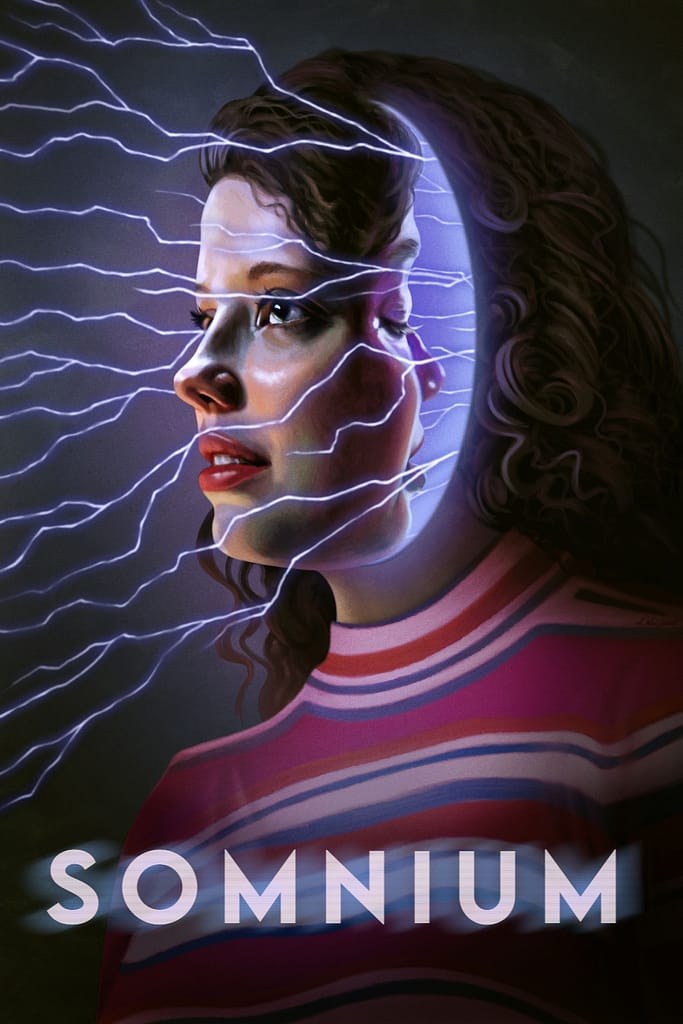My quick rating – 4.1/10. In Somnium, Gemma (Chloe Levine) packs up her life, heads to Los Angeles, and sets her sights on becoming an actress. But instead of waiting tables and auditioning for toothpaste commercials like every other struggling hopeful, she somehow lands in a surprisingly roomy apartment and takes a gig at a sleep clinic that claims it can make people’s dreams come true. Sounds like an easy paycheck, but the deeper she goes into her new workplace, the clearer it becomes that something off-kilter, if not outright sinister, is happening.
Levine does carry the film well, even if her character feels like someone who wandered in from a different kind of movie altogether. She’s got that shy, naive quality that makes her believable as a girl who might get roped into the wrong kind of “acting” job, but here she’s equal parts victim and amateur sleuth, poking around the clinic when things don’t add up. Oddly enough, her southern accent makes a brief cameo in the first act before disappearing entirely, as if even it realized it wasn’t needed and walked off set. Accent mishap aside, she’s probably the best thing about Somnium.
The movie structures itself with flashbacks intercut with Gemma’s time at the clinic, presumably to give us some backstory. Unfortunately, none of these really matter, and they mostly serve to blur the line between dreams and reality. That might sound clever on paper, but in practice, it’s more like filler. And that becomes the recurring problem here: a lot of atmosphere, but not much substance. The so-called “creature” haunting the dreams is creepy enough to look at, but there’s no actual horror to it. Instead, it feels more like a personification of Gemma’s insecurities—interesting as a metaphor, not so much if you’re looking for scares.
To the film’s credit, first-time director Racheal Cain delivers something that looks sharp. The clinic has a polished, sterile feel, and the dream sequences have a floaty, otherworldly aesthetic that suggests Cain has an eye for visuals. But the story she co-wrote doesn’t really land on screen the way it should. I couldn’t help but wonder if she was drawing loose parallels between how people chase success in Hollywood and the dream-manipulation concept here. If so, it’s a thread that never fully comes together.
The pacing is another major hurdle. The film moves slowly, and while that can work in the right context, here it mostly leaves you waiting for something—anything—to happen. The clinic is framed as this place of mystery and dread, but almost nothing that happens there registers as horror or thriller material. Characters mostly just sit around talking, which undercuts the potential tension of the premise.
Somnium had the bones of a unique concept—dreams, fears, identity, ambition—but it squanders most of it. Instead of exploring the bigger ideas, it falls back on repetitive dialogue and underwhelming reveals. If you’re willing to shrug off the plot holes and treat it as a kind of dreamlike mood piece, you might find some entertainment in its atmosphere. But as a horror or even a psychological thriller, it misses the mark.








